|
The Hellenic Genocide
Quotes from historical documents and related Photos. |
||||||
CHAPTER III: "It seems like poetic justice that Russia, by her jealous refusal to permit the Greeks even to help take Constantinople for her, should now apparently have lost all chance of getting it herself. There is little doubt---had Venizelos's first plan been followed---but that Constantinople would have fallen into the hands of the Allies. So convinced were the Turks themselves of this that they had all their preparations made to move the Government to Brusa, if the Greeks sent fifty thousand men to Gallipoli." CHAPTER VI: "That group of men in Italy aspires not only to North Epirus, now under the Greek flag, not only to Smyrna and her hinterland with seven hundred and fifty thousand Greek inhabitants, but Prussia-like aspires to the hegemony of the Mediterranean; and she was making most malignant efforts to keep Greece divided, by encouraging King Constantine. Above all else she wished to prevent Greece's coming into the war, in order that there might be no danger of anything in the Eastern Mediterranean falling to her portion."
CHAPTER I: "For the Balkan powers (Bulgaria, Serbia, Montenegro, Greece) this seemed an opportunity to attack Turkey before she should conclude peace with Italy. The "Young Turks" who had acquired control of Turkey were even more oppressive in Macedonia and Thrace than the old Sultan." CHAPTER III: "In Turkey, there was a large and flourishing Greek population,. influential and rich. The Turks feared that the European powers might decide to allow Greece to annex the parts of Macedonia and Thrace that had a majority of Greeks---nearly a million in Thrace alone---and also perhaps the islands and rich southern shores of Asia Minor, peopled by Greeks from time immemorial. The "new Turks" in 1913 decided that these Greeks must be moved, impoverished, killed, or put out of the way. The purely Germanic scheme of wholesale deportation combined with robbery and destruction of all property was adopted. The work began in Asia Minor ----nearly a year before the war." CHAPTER III: "The instructions to the Governor of Smyrna (on the next page) give the characteristic Germanic excuse for beginning the atrocities, namely they accuse the Greeks of planning a revolutionary movement, just as they had accused the Armenians. This was an even more transparent lie, because the Greeks had not as yet been obliged to arm themselves for defense against periodical Turkish massacres as had the Armenians. A similar Germanic method of first getting rid of the able-bodied men was practised as in the case of the Armenians. They were drafted into the Turkish army and then, when under military control, were martyrized. The official reports issued in May 1918 by the Greek Ministry of Foreign Affairs show how several hundred thousand Greeks had been killed, the girls forced into Mohammedan harems, the children torn from their families to be brought up as Mohammedans. A thoroughly German touch was to force the inhabitants under fear of death to sign statements that they were leaving their homes of their own free will." CHAPTER III: "Some evacuated places were prosperous cities like Cydonia (Aivali) with 30,000 inhabitants. Many of the evacuated Christian villages, after being plundered, were destroyed by fire. The people were not allowed to take anything with them, not even warm clothing." CHAPTER III: "The caravans of deported were herded into the interior of Asia Minor, into the region of Turkish villages, or else sent off on the frightful long march toward Mesopotamia. Wherever it was, those that survived found themselves without shelter or food, and the Mohammedans were instructed by the authorities to starve and abuse them. Their money and clothes were stolen. They died off like flies. They were given food and shelter only in case they abjured Christianity, and usually this applied only to the young. As the able-bodied men, who might have protected them, had all been previously disposed of they were a helpless prey." CHAPTER III: "Practically all the Greek centres of life in Thrace, along the Sea of Marmora, and the coast of Asia Minor have been destroyed. Our ambassador to Turkey, Mr. Morgenthau, says: "Admiral Usedom, one of the big German naval experts of Turkey, told me that the Germans had suggested this deportation to the Turks." The Greeks, like the Armenians, were in Germany's way. The leading Pan-German writers upheld the Turks to the limit of their worst atrocities." The Hellenic Genocide Quotes from historical documents and related Photos. Previous page | Initial page | Site Map | Next page (11th of 29) |
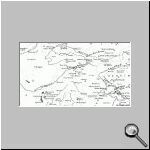
Yozgad to Diyarbekir.
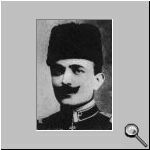
Enver Pasha, Minister of War. A leader of the Young Turks.
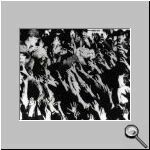
Distribution of bread by the Near East Relief at Harpout.
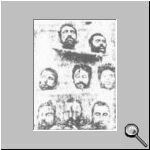
Heads of Christians, treated like trophies by the Turks.
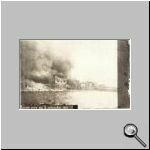
Buildings on fire at the quay of Smyrna.
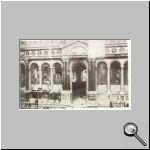
The Saint Ioannis Church.
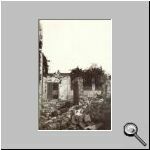
Destroyed houses in Smyrna.

The church of Saint Aikaterini in Imvros.
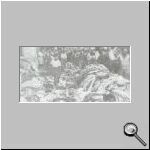
Destroyed Hellenic property.
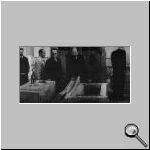
Desecrated Patriarchal tombs.